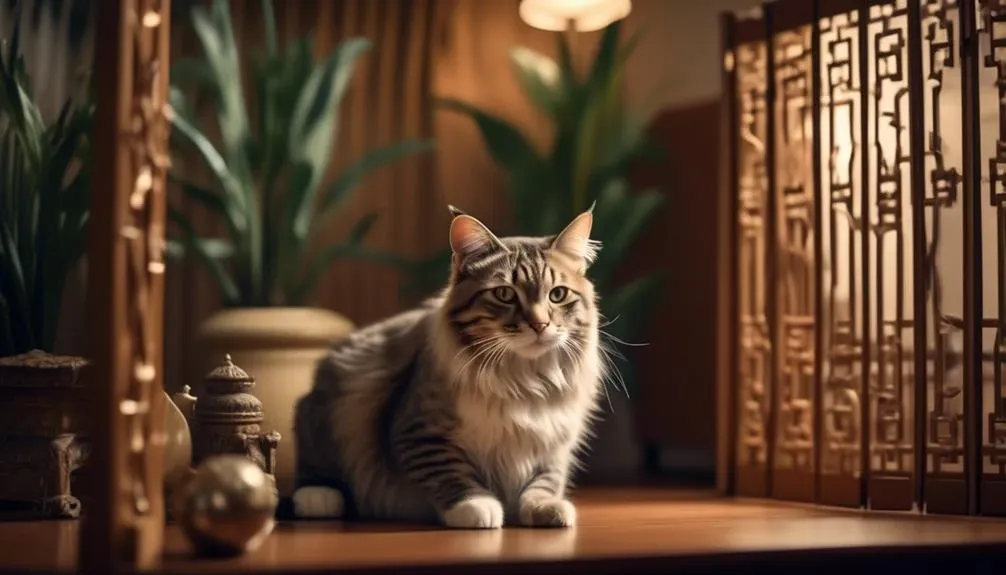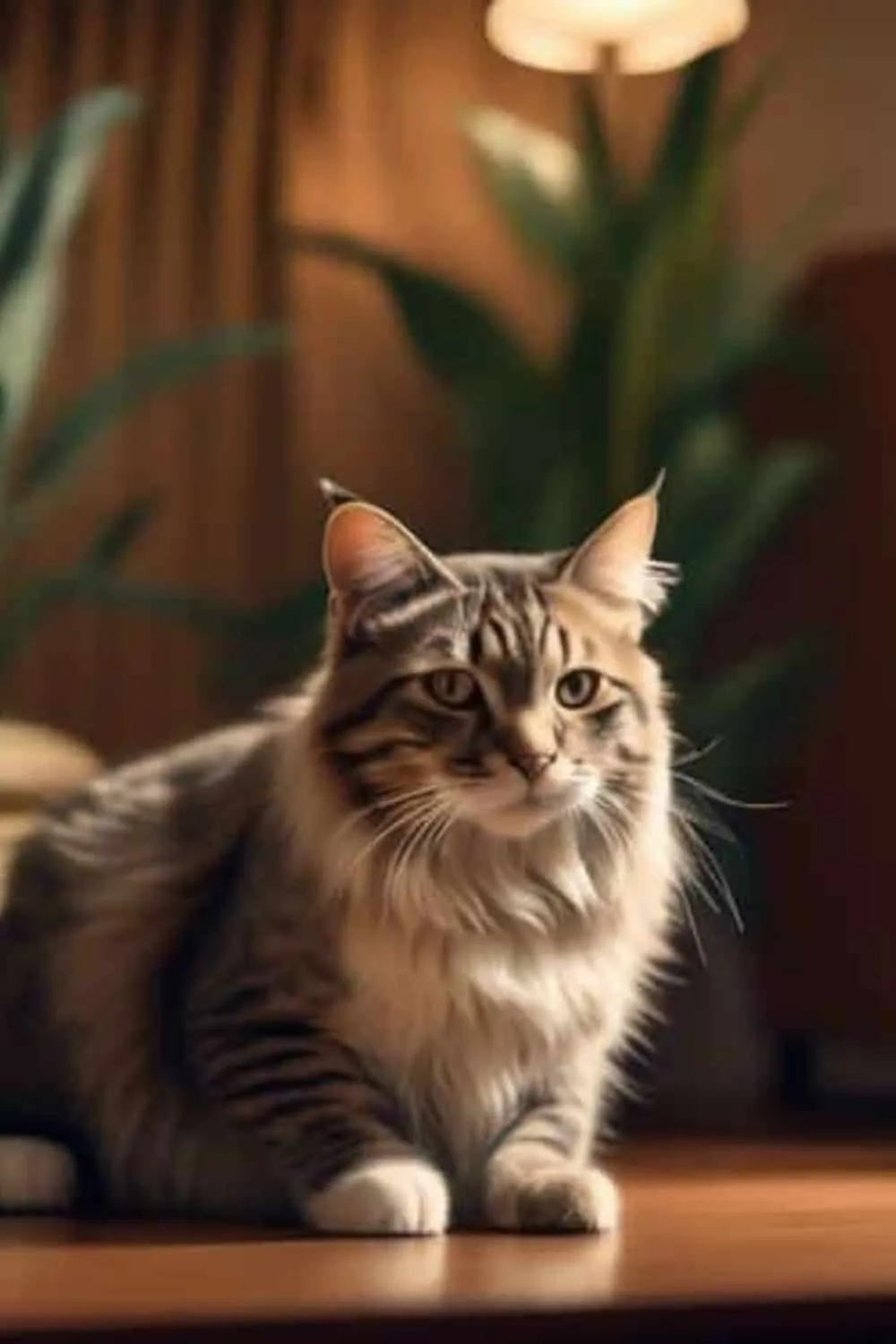The Best Fluffy Pancakes recipe you will fall in love with. Full of tips and tricks to help you make the best pancakes.

Cat owners are constantly searching for the best litter to ensure the comfort and well-being of their feline companions. Among the various options available, scented litter may appear to be an appealing choice, promising to eliminate unpleasant odors. However, it is crucial for cat owners to exercise caution and be aware of the potential dangers that come with scented litter.
This article aims to explore the hidden risks associated with scented litter, both for cats and their owners. By delving into the adverse effects it can have on feline health, such as allergies and respiratory difficulties, as well as the potential harm it can cause to human health, including the inhalation of harmful chemicals, cat owners will gain valuable insights to make an informed decision when selecting litter for their beloved pets.
Key Takeaways
- Scented litter can effectively mask urine smells with fragrances, but some cats may have allergic reactions or breathing difficulties with it.
- Unscented litter is a good option for cats with sensitivities and may contain natural odor neutralizers.
- Both clay and crystal litter types have their advantages and disadvantages, such as clumping ability, dust production, and environmental impact.
- Biodegradable/flushable litter is an environmentally conscious option but should not be flushed down the toilet and can be more expensive than other types of litter.
Types of Litter
There are several types of cat litter available on the market, each with its own unique features and benefits.
Two popular options are clay litter and crystal litter. Clay litter is convenient and affordable, and it absorbs odors while forming clumps for easy cleaning. It comes in both clumping and non-clumping varieties.
Clumping litter forms tight clumps, absorbs ammonia smell, and requires daily scooping. Non-clumping litter absorbs odors but doesn't form clumps and should be scooped once a day. Both types produce dust and debris, which can cause respiratory difficulties.
On the other hand, crystal litter doesn't clump but absorbs urine in crystals. It has less dust and tracking, making it ideal for allergies or respiratory conditions. It is also lighter and longer-lasting compared to clay litter.
Ultimately, choosing the right litter for your cat's health and comfort depends on their specific needs and your personal preferences.
Clay Litter
Clay litter is a popular choice among cat owners due to its convenience, affordability, and effective odor control properties. However, there are some concerns regarding dust and potential long-term health effects associated with its use.
- Dust Concerns:
- Clay litter can produce dust and debris when cats dig in the litter box.
- This dust can lead to respiratory difficulties, especially for cats with pre-existing respiratory conditions or allergies.
- Long-Term Health Effects:
- Continuous exposure to clay litter dust can potentially cause respiratory problems in both cats and their owners.
- Studies have shown that the inhalation of clay dust may contribute to lung damage and respiratory diseases over time.
To minimize these risks, it is recommended to choose low-dust or dust-free clay litter options and ensure proper ventilation in the litter area. Regular cleaning and maintenance, along with monitoring your cat's respiratory health, are also essential.
Crystal Litter
Crystal litter offers a unique alternative to traditional clay litter, providing cat owners with a lightweight and long-lasting option that requires less daily maintenance. Unlike clay litter, crystal litter does not clump but instead absorbs urine in the form of crystals. This type of litter produces less dust and tracking, making it ideal for cats with allergies or respiratory conditions. The absence of dust particles in crystal litter reduces the risk of respiratory difficulties commonly associated with clay litter.
Furthermore, crystal litter is lighter and lasts longer compared to other types of litter, making it a cost-effective choice for cat owners. However, it is important to note that crystal litter is not biodegradable.
Biodegradable/Flushable Litter
The next type of litter to be discussed is the biodegradable/flushable litter, offering an environmentally conscious alternative for cat owners.
Benefits:
- Environmentally conscious: Biodegradable/flushable litter is made from recycled materials like newspapers, tofu, or corn, reducing the amount of waste that ends up in landfills.
- Easy disposal: This type of litter can be flushed down the toilet, eliminating the need for scooping and bagging cat waste.
Drawbacks:
- Septic system problems: Flushing biodegradable/flushable litter can cause issues with septic systems, as it may not break down properly and can lead to clogs.
- Health concerns: Cat waste in the water supply can pose health risks, so it is important to ensure that the litter is disposed of properly.
While biodegradable/flushable litter offers benefits in terms of environmental consciousness and convenience, it is crucial to consider the potential drawbacks and make an informed decision based on individual circumstances.
Clumping and Non-Clumping Options
When choosing litter for your cat, it is important to consider the options available, including the different types of clumping and non-clumping options.
Clumping litter forms tight clumps when it comes into contact with urine, making it easier to scoop and remove waste. It also absorbs the ammonia smell, providing effective odor control. However, clumping litter can produce dust and debris, which may cause respiratory difficulties in sensitive cats or owners.
On the other hand, non-clumping litter absorbs odors but does not form clumps. It requires scooping once a day to remove solid waste. While it may produce less dust, it still poses the risk of respiratory issues.
Ultimately, the choice between clumping and non-clumping litter depends on personal preference and the specific needs of your cat.
Odor Control and Urine Build-Up
After considering the different types of clumping and non-clumping litter options, it is important to understand how odor control and urine build-up can vary between these choices.
The importance of regular litter box cleaning:
- Regular cleaning is crucial to maintain a fresh and hygienic environment for your cat.
- Neglecting to clean the litter box regularly can lead to unpleasant odors and potential health issues for your cat.
The impact of urine build-up on a cat's health:
- Urine build-up in the litter box can create an environment that promotes bacterial growth and urinary tract infections.
- It can also result in ammonia fumes, which can irritate your cat's respiratory system and cause discomfort.
To ensure effective odor control and promote your cat's health, it is essential to clean the litter box regularly and remove any urine build-up promptly. This will create a clean and comfortable space for your cat while minimizing the risk of health problems.
Crystal Litter Benefits
Crystal litter offers several advantages over other types of litter. It doesn't clump, which means you only need to scoop out the feces, resulting in less daily maintenance. The urine gets absorbed into the crystals, reducing odors and minimizing the need for frequent scooping.
Crystal litter also produces less dust and tracking, making it ideal for cats with allergies or respiratory conditions. Additionally, it is lighter and longer-lasting compared to clay litter.
When choosing the right crystal litter for your cat, consider factors such as the size of the crystals (smaller crystals may be more comfortable for sensitive paws), the level of absorbency, and the presence of any added fragrances. It's important to find a crystal litter that meets your cat's needs while providing effective odor control and comfort.
Environmental Considerations
Considering the impact on the environment is an important factor when choosing the right litter for your cat. Here are some environmental considerations to keep in mind:
Eco-friendly alternatives:
- Biodegradable/flushable litter: Made from recycled materials like newspapers, tofu, or corn, these options are environmentally conscious and don't contribute to landfills.
- Crystal litter: While not biodegradable, crystal litter is lighter and longer-lasting, which can make it more environmentally friendly in terms of production and transportation.
Health risks:
- Cat waste in water supply: Flushing cat waste down the toilet can lead to health issues as it can contaminate water sources.
- Dust and debris: Clay litter and some crystal litters can produce dust and debris, which can cause respiratory difficulties for both cats and humans.
Considering these factors will help you make an informed decision that is both eco-friendly and safe for your cat's health.
Scented or Unscented Options
When selecting the right litter for your cat, one important consideration to keep in mind is whether to choose scented or unscented options.
Scented litter offers the benefit of masking urine smells with fragrances, providing effective odor control. This can be especially useful for households with multiple cats or limited ventilation. However, it's important to note that some cats may have allergic reactions or experience breathing difficulties with scented litter.
Unscented litter, on the other hand, doesn't have added fragrance but may contain natural odor neutralizers. It allows cats to use their sense of smell to locate and use the litter box. Additionally, litter additives like baking soda can enhance odor control in unscented litter.
Ultimately, the choice between scented or unscented litter depends on your cat's preferences and any sensitivities they may have.
Conclusion
In conclusion, while scented litter may seem like a convenient solution to masking odors, cat owners should be aware of the potential risks associated with this type of litter.
From allergic reactions and respiratory difficulties in cats to the inhalation of harmful chemicals by humans, scented litter poses hidden dangers. Moreover, the fragrances used in scented litter can exacerbate allergies in sensitive animals, leading to increased discomfort and health complications. Additionally, the incense health risks for cats can arise from prolonged exposure to these artificial scents, potentially resulting in chronic respiratory issues. Pet owners should remain vigilant and consider unscented options to safeguard their feline friends from these hidden hazards.
It is crucial for cat owners to prioritize the health and well-being of their feline companions by opting for unscented litter that minimizes potential risks.










